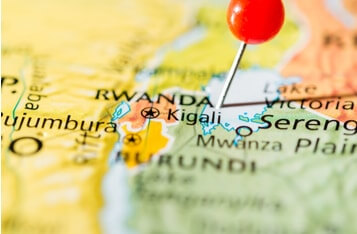Search Results for "digital central bank"
South Korea’s Central Bank Launches Central Bank Digital Currency Pilot Program in Case of Future Necessity
South Korea’s central bank recently announced that it has launched a pilot program assessing the issuance of a central bank digital currency (CBDC). The Bank of Korea has stated that there are no immediate plans to launch a CBDC, however, the pilot program will allow the central bank to be prepared in the future if the changing market conditions require its issuance.
Six Central Banks Form Working Group to Assess Central Bank Digital Currencies
Six central banks around the world have come together to create a working group to share experiences on use cases on central bank digital currency (CBDC). With significant expertise in exploring digital currencies, these six central banks are the Bank of Canada, Bank of England, Bank of Japan, European Central bank, Sveriges Riksbank in Sweden, and the Swiss National Bank, and the Bank of International Settlements (BIS).
Singapore Consults China on Central Bank Digital Currency
Singapore is considering a partnership with China as it works on developing a Central Bank Digital Currency dubbed Project Ubin
Bank for International Settlements Reveals Findings on Central Bank Digital Currencies
The Bank for International Settlements released its analysis report in which it evaluated central bank digital currencies globally.
Lebanon Considers a Central Bank Digital Currency for 2021
The Governor of The Central Bank of Lebanon Riad Salameh has revealed the possibility of the bank launching a digital currency by 2021.
Ghana Confirms Its Interest in Piloting Central Bank Digital Currency
Ghana has confirmed that it is on the hunt for a Central Bank Digital Currency (CBDC). The Bank of Ghana’s deputy governor, Dr. Maxwell Opoku-Afari, recently revealed that the country’s central bank remains committed to piloting a national digital currency. He made such remarks during a virtual stakeholder workshop on payment systems and services as reported by GhanaWeb local news outlet.
Jamaica to Launch Central Bank Digital Currency in 2022
Jamaica’s Minister of Finance Nigel Clarke has announced that the country intends to launch its central bank digital currency (CBDC) in 2022.
Rwanda’s Central Bank is Planning to Issue Its Own Digital Currency
Rwanda’s Central Bank, the National Bank of Rwanda is researching ways to issue its own digital currency.
Bank of Thailand Tests its Central Bank Digital Currency with Large Businesses Before Official Debut
The Bank of Thailand (BoT), Thai’s central bank, is already utilizing its central bank digital currency (CBDC) for financial transactions with various big businesses. This development ushers in the third development phase of the nation’s CBDC before a public debut.
Estonia's Central Bank Launches Research Project into CBDC
Estonia’s Central Bank also known as Eesti Pank has launched a multi-year research project into central bank digital currencies.
Central Bank Digital Currency (CBDC) Race: 2020 Year in Review
As 2020 comes to a close, we take a look back at the most important developments regarding the pursuit of Central Bank Digital Currencies (CBDC).
Bank of International Settlement Revealed Positive Outlook on Central Bank Digital Currencies
The Bank for International Settlements (BIS), a coalition of 62 central banks, has weighed in on the trending topic of central bank digital currencies (CBDCs). The global central bank noted a positive interest by central banks to develop their state-backed digital currencies.











